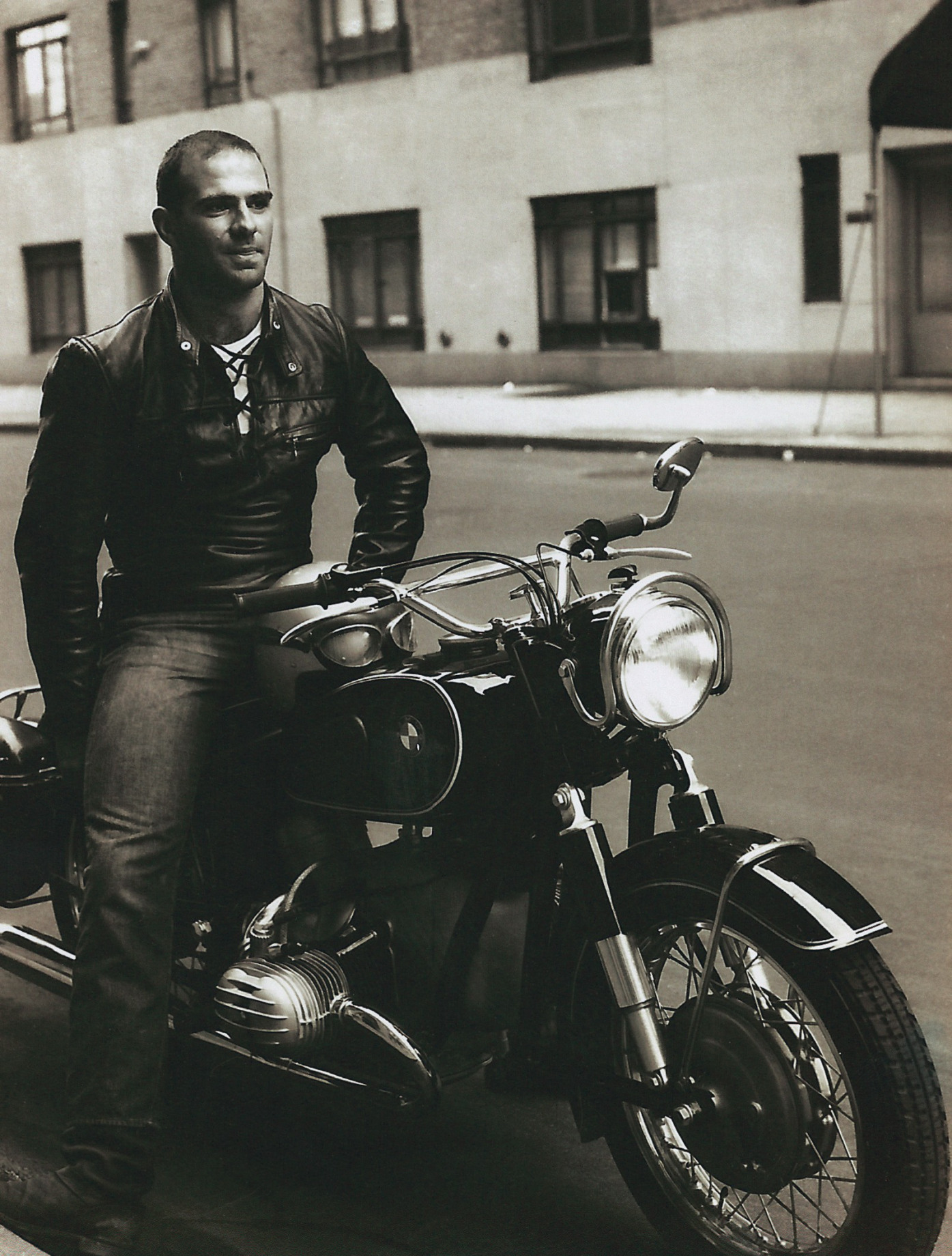I’ve read most of Lawrence Weschler’s books and gotten so much from them, particularly Seeing Is Forgetting the Name of the Thing One Sees and Vermeer in Bosnia. In a new Vanity Fair article, he uses passages from a long-shelved biography of his friend Oliver Sacks, the terminally ill neurologist, to profile the doctor in a way only a confidante and great writer can, revealing the many lives Sacks has lived, in addition to the public-intellectual one we’re all familiar with. Weschler is convinced that Sacks’ period of excessive experimentation with drugs when young led to his later scientific breakthroughs. An excerpt:
I had originally written him a letter, sometime in the late 70s, from my California home. Somehow back in college I had come upon Awakenings, published in 1973, an account of his work with a group of patients who had been warehoused for decades in a home for the incurable—they were “human statues,” locked in trance-like states of near-infinite remove following bouts of a now rare form of encephalitis. Some had been in this condition since the mid-1920s. These people were suddenly brought back to life by Sacks, in 1969, following his administration of the then new “wonder drug” L-dopa, and Sacks described their spring-like awakenings and the harrowing siege of tribulations that followed. In the book, Sacks gave the facility where all this happened the pseudonym “Mount Carmel,” an apparent reference to Saint John of the Cross and his Dark Night of the Soul. But, as I wrote to Sacks in that first letter, his book seemed to me much more Jewish and Kabbalistic than Christian mystical. Was I wrong?
He responded with a hand-pecked typed letter of a good dozen pages, to the effect that, indeed, the old people’s home in question, in the Bronx, was actually named Beth Abraham; that he himself came from a large and teeming London-based Jewish family; that one of his cousins was in fact the eminent Israeli foreign minister Abba Eban (another, as I would later learn, was Al Capp, of Li’l Abner fame); and that his principal intellectual hero and mentor-at-a-distance, whose influence could be sensed on every page of Awakenings, had been the great Soviet neuropsychologist A.R. Luria, who was likely descended from Isaac Luria, the 16th-century Jewish mystic.
Our correspondence proceeded from there, and when, a few years later, I moved from Los Angeles to New York, I began venturing out to Oliver’s haunts on City Island. Or he would join me for far-flung walkabouts in Manhattan. The successive revelations about his life that made up the better part of our conversations grew ever more intriguing: how both his parents had been doctors and his mother one of the first female surgeons in England; how, during the Second World War, with both his parents consumed by medical duties that began with the Battle of Britain, he, at age eight, had been sent with an older brother, Michael, to a hellhole of a boarding school in the countryside, run by “a headmaster who was an obsessive flagellist, with an unholy bitch for a wife and a 16-year-old daughter who was a pathological snitch”; and how—though his brother emerged shattered by the experience, and to that day lived with his father—he, Oliver, had managed to put himself back together through an ardent love of the periodic table, a version of which he had come upon at the Natural History Museum at South Kensington, and by way of marine-biology classes at St. Paul’s School, which he attended alongside such close lifetime friends as the neurologist and director Jonathan Miller and the exuberant polymath Eric Korn. Oliver described how he gradually became aware of his homosexuality, a fact that, to put it mildly, he did not accept with ease; and how, following college and medical school, he had fled censorious England, first to Canada and then to residencies in San Francisco and Los Angeles, where in his spare hours he made a series of sexual breakthroughs, indulged in staggering bouts of pharmacological experimentation, underwent a fierce regimen of bodybuilding at Muscle Beach (for a time he held a California record, after he performed a full squat with 600 pounds across his shoulders), and racked up more than 100,000 leather-clad miles on his motorcycle. And then one day he gave it all up—the drugs, the sex, the motorcycles, the bodybuilding. By the time we started talking, he had been pretty much celibate for almost two decades.•
Tags: Lawrence Weschler, Oliver Sacks

